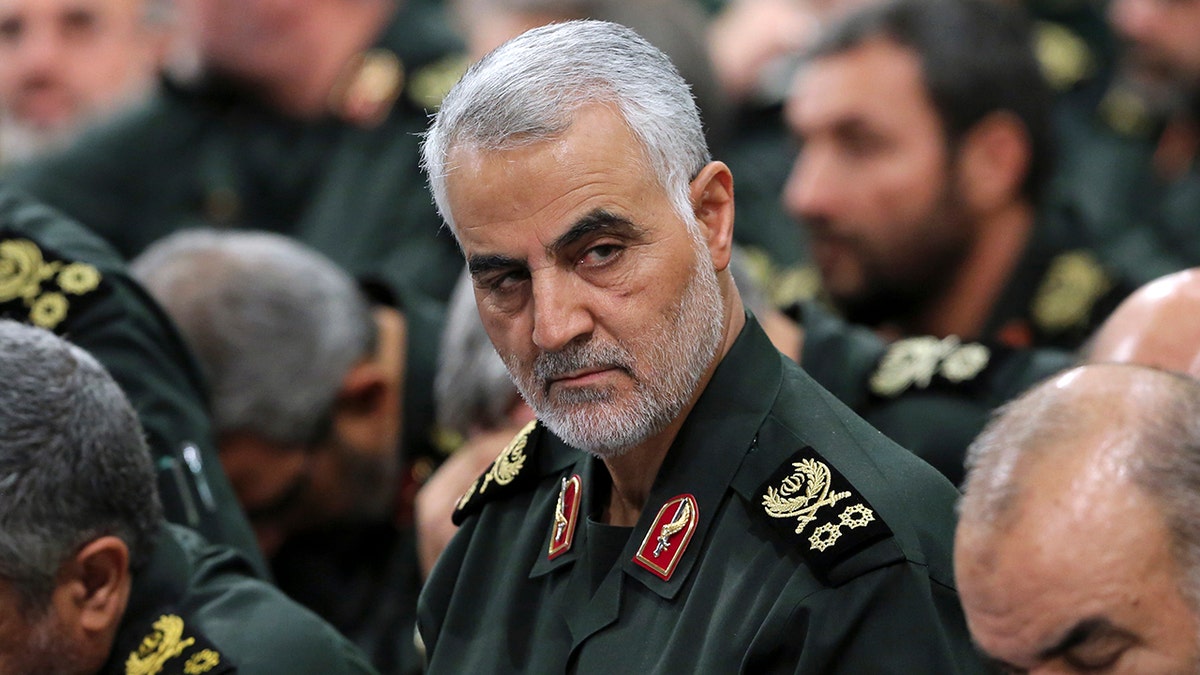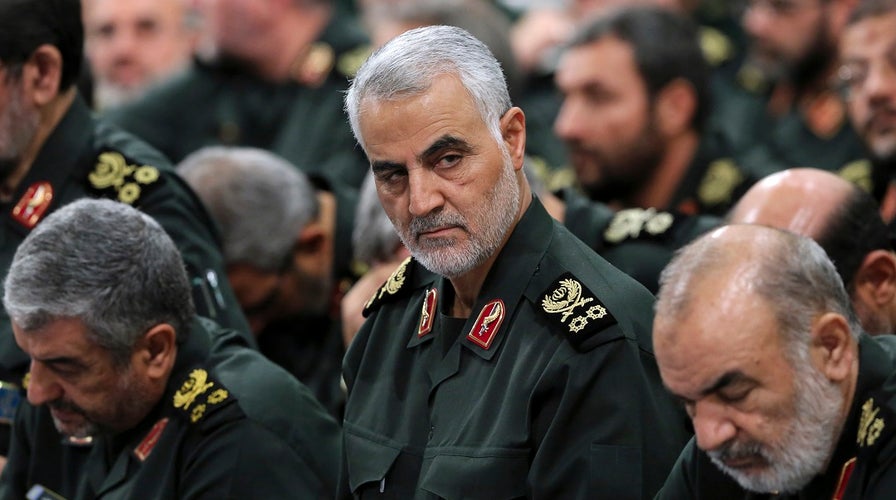Fox News Flash top headlines for Jan. 7
Fox News Flash top headlines for Jan. 7 are here. Check out what's clicking on Foxnews.com
Iran buried Gen. Qassem Soleimani, the Iranian military leader killed in a U.S. airstrike in Baghdad, early Wednesday just after launching a ballistic missile attack on Iraqi bases housing U.S. troops.
The U.S. took out Soleimani because it says he is responsible for the deaths of hundreds of U.S. forces and was in the process of plotting the deaths of many more.
Officials lowered the general’s remains into the ground just before 6 a.m. on Wednesday in his hometown of Kerman. Mourners at the grave site wailed.

FILE - In this Sept. 18, 2016 file photo released by an official website of the office of the Iranian supreme leader, Revolutionary Guard Gen. Qassem Soleimani, center, attends a meeting in Tehran, Iran. (Office of the Iranian Supreme Leader via AP, File)
IRAN LAUNCHES 15 BALLISTIC MISSILES INTO IRAQ TARGETING US, COALITION FORCES, OFFICIALS SAY
U.S. officials say 15 missiles were fired in retaliation for his death. Ten missiles hit Al-Assad Air Base, one missile hit a military base in Erbil and four missiles failed to hit their targets, according to a U.S. military spokesman for Central Command, responsible for American forces in the Middle East. The attacks unfolded in two waves, about an hour apart.
Iran's foreign minister called the ballistic-missile attacks "proportionate measures in self-defense."
"We do not seek escalation or war, but will defend ourselves against any aggression," he tweeted.
No U.S. casualties have been reported. President Trump said Tuesday night a full assessment of the damages was still underway, but “so far, so good!”
During the funeral for Soleimani on Tuesday, at least 56 were crushed to death when a stampede erupted in Kerman, and another 200 injured. The cause of the stampede was unknown.
SOLEIMANI FUNERAL STAMPEDE IN IRAN LEAVES AT LEAST 56 DEAD, STATE TV REPORTS
A separate funeral procession in the capital of Tehran drew more than 1 million people.
Iran so far has worked up 13 sets of plans to avenge Soleimani's killing, according to a report from the Tasnim news agency.
It quoted Ali Shamkhani, the secretary of Iran’s Supreme National Security Council, as saying that even the weakest among them would be a “historic nightmare” for the U.S. But he declined to give any details.
CLICK HERE FOR THE FOX NEWS APP
“If the U.S. troops do not leave our region voluntarily and upright, we will do something to carry their bodies horizontally out," Shamkhani said.
Fox News' Frank Miles, Greg Norman and The Associated Press contributed to this report.

